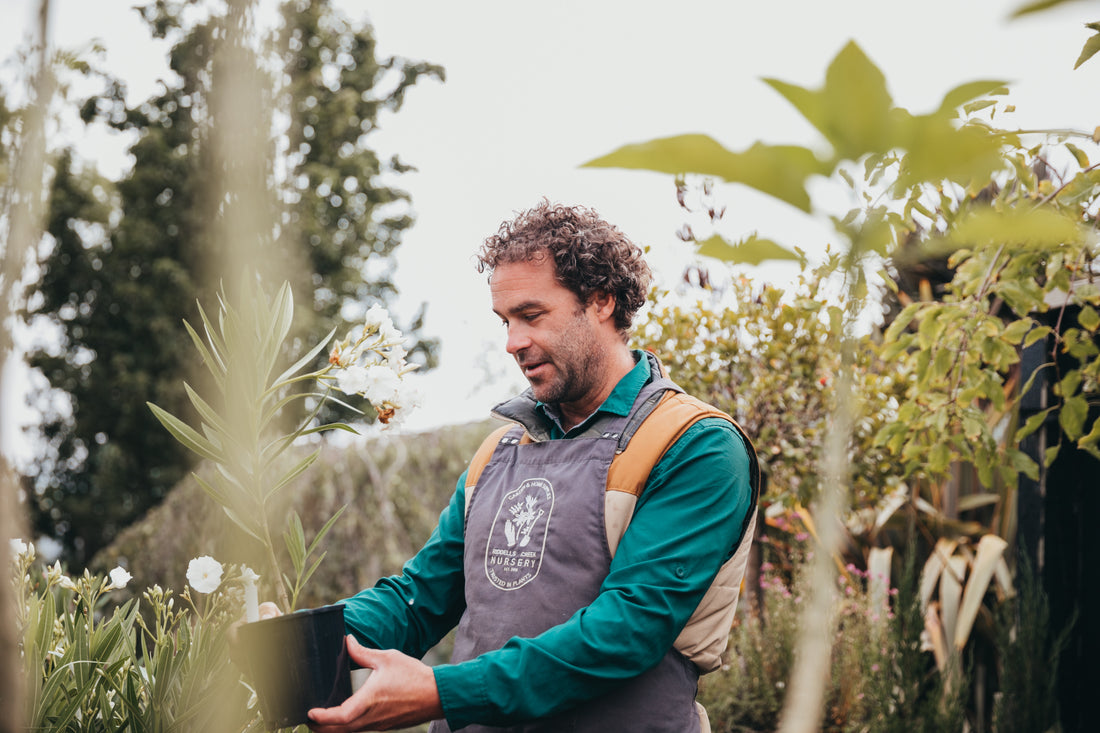Summer is a vibrant season for gardens in the Macedon Ranges. Perennials like salvias, penstemons and yarrow are buzzing with pollinators. Roses are perfect for picking to add colour to outdoor dining, while hydrangeas, so quintessential to the region, light up shaded corners. With the sun shining brightly and temperatures rising, it’s important to provide proper care for your plants to ensure they thrive and don't fry. In this article, we will explore some essential summer plant care tips specifically tailored for gardens in the Macedon Ranges.
1. Watering
Watering is a balancing act during the summer months. Plants need an adequate amount of moisture to withstand the heat whilst overwatering can lead to root rot and stunted growth. The key is to water your plants deeply but less frequently, allowing the soil to dry out slightly between waterings. You can check soil moisture by digging test holes with a trowel or using a soil moisture probe. Early morning or late evening is the best time to water, as it minimizes evaporation and allows plants to absorb the water effectively.

2. Mulching
Applying a layer of organic mulch, such as straw or wood chips, has a host of benefits in the garden. It helps to retain soil moisture, suppress weeds and protect plant roots from extreme temperatures. Additionally, mulch has further benefits as it breaks down over time. Healthy soil microbes feed on the mulch, releasing stored nutrients and improving soil structure. Over the years this will lead to better drainage, moisture and nutrient retention, as well as more resilient plants.
3. Pruning & Deadheading
Regular pruning and deadheading are essential for maintaining the health and appearance of your Victorian garden. Remove any dead or diseased branches to prevent the spread of plant pathogens and allow for better air circulation. This is especially important in the vegie patch. Indeterminate tomatoes need side shoots pinched out and the prompt removal of diseased leaves will keep cucumbers and other cucurbits productive. Deadheading, the removal of spent flowers, encourages continuous blooming and prevents plants from wasting energy on seed production. This will keep the plants and garden looking fresh and tidy.

4. Fertilizing
During the summer, plants are actively growing and require additional nutrients to thrive. In particular plants that flower profusely, such as roses, will benefit from a timely feed. Consider using organic fertilizers, such as compost or well-rotted manure, to provide a slow release of nutrients. You can perk up stressed plants with compost tea or seaweed solution. Apply fertilizers according to the specific needs of each plant, as over-fertilization can lead to excessive and weak growth. Follow the instructions on the packaging and avoid fertilizing during periods of extreme heat.
5. Pest & Disease Control
Summer brings with it an influx of pests and diseases that can harm your plants. Regularly inspect your garden for signs of infestation, such as chewed leaves or discolored spots. Employ natural pest control methods, like encouraging beneficial insects with diverse plantings, exclusion netting or using organic insecticides, to minimize damage. Additionally, practicing good garden hygiene can help prevent the spread of diseases. Remove fallen leaves and debris and be sure to clean your garden tools regularly.
6. Some plants in your garden may require protection from the intense summer sun. Consider using shade cloths, umbrellas, or constructing temporary structures to provide shade on days of extreme heat. Pot plants can be moved into more shade or grouped together to create a microclimate and shield their pots from direct sun. This will help prevent sunburn and heat stress, ensuring the health and longevity of your plants. Take note of any plants that seem to be constantly sun stressed, and consider transplanting in the autumn.
7. Regular Monitoring
Prevention is better than a cure. By regularly monitoring your plants for early signs of stress, such as wilting or yellowing leaves, you can nip problems in the bud before they escalate. Promptly address any issues by adjusting watering schedules, providing additional shade, or treating pests and diseases. By staying vigilant and responsive, you can keep your garden thriving throughout the summer season.

With these summer plant care tips, your garden in the Macedon Ranges will flourish under the summer sun. By providing adequate water, mulching, pruning, fertilizing, and implementing pest and disease control measures, you can ensure the health and beauty of your plants. If you are stuck with a thorny garden problem, or need advice on the best plants to suit the conditions in your garden, drop in to Riddells Creek Nursery and speak with one of our knowledgeable team members. With proper care, your garden will be a vibrant oasis throughout the summer months.

